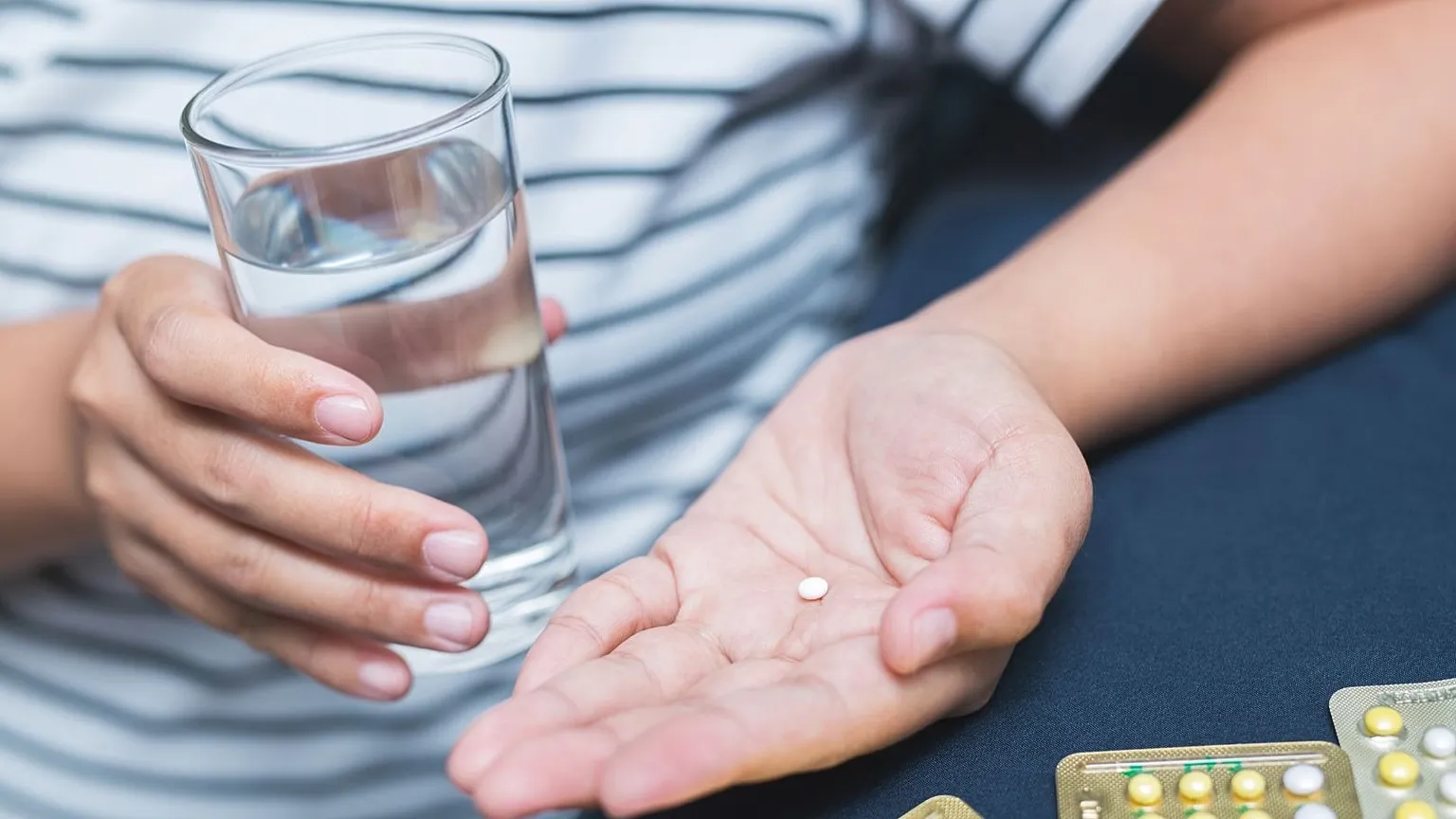A breakthrough weight loss pill is making headlines across the UK, and it might change everything we know about obesity treatment. The new tablet has just cleared major clinical trials with results that have even the most cautious doctors taking notice.
But here’s what makes this different from every other weight loss story you’ve heard: this isn’t about another fad diet or miracle cure. This is about a proper medication that could be available on the NHS within the next couple of years, and the early results are genuinely impressive.
The question everyone’s asking is whether this weight loss pill could finally offer a real alternative to the weekly injections that thousands of Britons currently rely on.
What Makes This Weight Loss Pill Different?
The medication is called orforglipron, and if you’re thinking that sounds complicated, don’t worry – everyone’s just calling it the “daily weight loss pill.” What makes it special isn’t just what it does, but how you take it.
Right now, if you want the most effective weight loss medications like Wegovy or Mounjaro, you need to inject yourself weekly. Not everyone’s comfortable with needles, and that’s been a real barrier for people who could benefit from these treatments.
People taking the highest dose of orforglipron (36mg) lost an average of 12.4% of their body weight – that’s about two stone (27 pounds) for someone starting at 16 stone. Even more impressive, nearly 40% of people on this dose lost 15% or more of their starting weight.
This weight loss pill works the same way as those injections, but you just swallow it with your morning cuppa.
The Numbers That Have Everyone Talking

The clinical trial involved 3,127 adults over 72 weeks, and the results are the kind that make headlines. Three in five (60%) of people taking the highest dose of orforglipron lost at least 10% of their body weight, while 40% lost at least 15% of their body weight.
To put that in perspective, if you weigh 15 stone and lose 10% of your body weight, that’s about 21 pounds – roughly the same as losing a medium-sized suitcase worth of weight.
But here’s the thing that really matters: these aren’t short-term results. The trial lasted over a year, which means people kept the weight off. That’s always been the holy grail of weight loss treatments – something that works long-term, not just for a few months.
The weight loss pill also helped people with diabetes. Around 75% of participants taking the highest dose achieved an A1C of 6.5% or less, which is at or below what the American Diabetes Association defines as diabetes.
When Could This Weight Loss Pill Reach the UK?
Here’s where things get interesting for anyone hoping to access this treatment. Eli Lilly aims to submit the medication for approval from the US FDA (Food and Drug Administration) as a weight loss treatment by the end of 2025 and as a type 2 diabetes treatment by 2026.
For the UK, if all goes well, Orforglipron could be authorised in the US by late 2025, with the UK expected to follow in 2026 or 2027. That might seem like ages away, but in pharmaceutical terms, it’s actually quite fast.
The real question is whether the NHS will make this weight loss pill available to patients. Given that they’ve already started offering other weight loss medications like Wegovy and Mounjaro in specialist weight management services, there’s reason to be optimistic.
What This Means for Current Patients
If you’re already using weight loss injections, this tablet version could be a game-changer. No more weekly injection routines, no more keeping medications in the fridge, no more worrying about travel or scheduling your doses around your week.
“I’ve been on Wegovy for eight months and the results have been brilliant, but I hate the injections,” one patient shared on a diabetes forum. “If I could get the same results from a daily pill, I’d switch tomorrow.”
The convenience factor can’t be overstated. Taking a daily weight loss pill is something most people can fit into their routine without thinking about it. It’s like taking a vitamin or any other daily medication.
How Does This Weight Loss Pill Actually Work?
Without getting too technical, orforglipron works by mimicking a hormone in your body called GLP-1. This hormone does several things that help with weight loss: it makes you feel fuller after eating, slows down how quickly food leaves your stomach, and helps regulate blood sugar levels.
It’s the same mechanism as the injection medications that are already available, just delivered in tablet form instead. The challenge has always been making a pill version that works as well as the injections – and it looks like they’ve cracked it.
Your body produces GLP-1 naturally, but this weight loss pill gives you a much stronger and longer-lasting version of the hormone. It’s not about suppressing appetite through stimulants or blocking fat absorption – it’s working with your body’s natural systems.
The Reality Check: Side Effects and Limitations

Let’s be honest about this: like any medication, this weight loss pill isn’t perfect. The most common side effects are nausea, vomiting, and diarrhea – basically the same issues people experience with the injection versions.
Most people find these side effects get better after the first few weeks, but they can be pretty rough initially. Some people can’t tolerate these medications at all, whether it’s the pill or injection form.
The weight loss pill also isn’t suitable for everyone. You need to meet certain criteria around BMI and health conditions, and it’s meant to be used alongside diet and lifestyle changes, not instead of them.
What About Cost and NHS Availability?
This is probably the biggest question mark. Current weight loss injections can cost hundreds of pounds per month if you’re buying them privately. The NHS offers them through specialist weight management services, but there are strict eligibility criteria and often long waiting lists.
Thousands of people will soon be able to be prescribed a drug to help them lose weight as part of their treatment in an NHS specialist weight management service. This suggests the NHS is expanding access to weight loss medications, which could include this new pill when it becomes available.
The hope is that a tablet version might be cheaper to produce and distribute than injections, potentially making it more accessible. But that’s still speculation at this point.
Looking Ahead: What This Could Mean for UK Healthcare
If this weight loss pill does make it to the NHS, it could significantly change how we approach obesity treatment in the UK. The convenience of a daily tablet versus weekly injections could mean more people stick with their treatment long-term.
The NHS plans to roll out to those with a BMI over 40 first, gradually extending to those with a BMI over 35. This staged approach means the most severely affected patients would get access first, which makes sense from a healthcare perspective.
The broader impact could be huge. Obesity costs the NHS billions every year in associated health problems. Effective weight loss treatments that people actually stick with could save money and improve lives across the board.
Right now, we’re in that waiting period where the science looks promising, but we need to see how the regulatory process unfolds. With early 2026 set as the likely launch window, there’s a lot to look forward to — especially for those who prefer pills over injections.
For anyone struggling with weight and considering medical treatment, this weight loss pill represents genuine hope for a more convenient option in the not-too-distant future.
